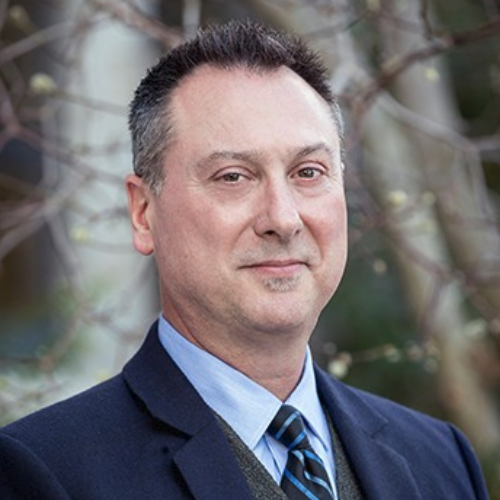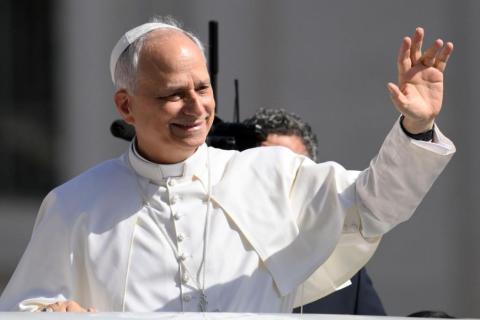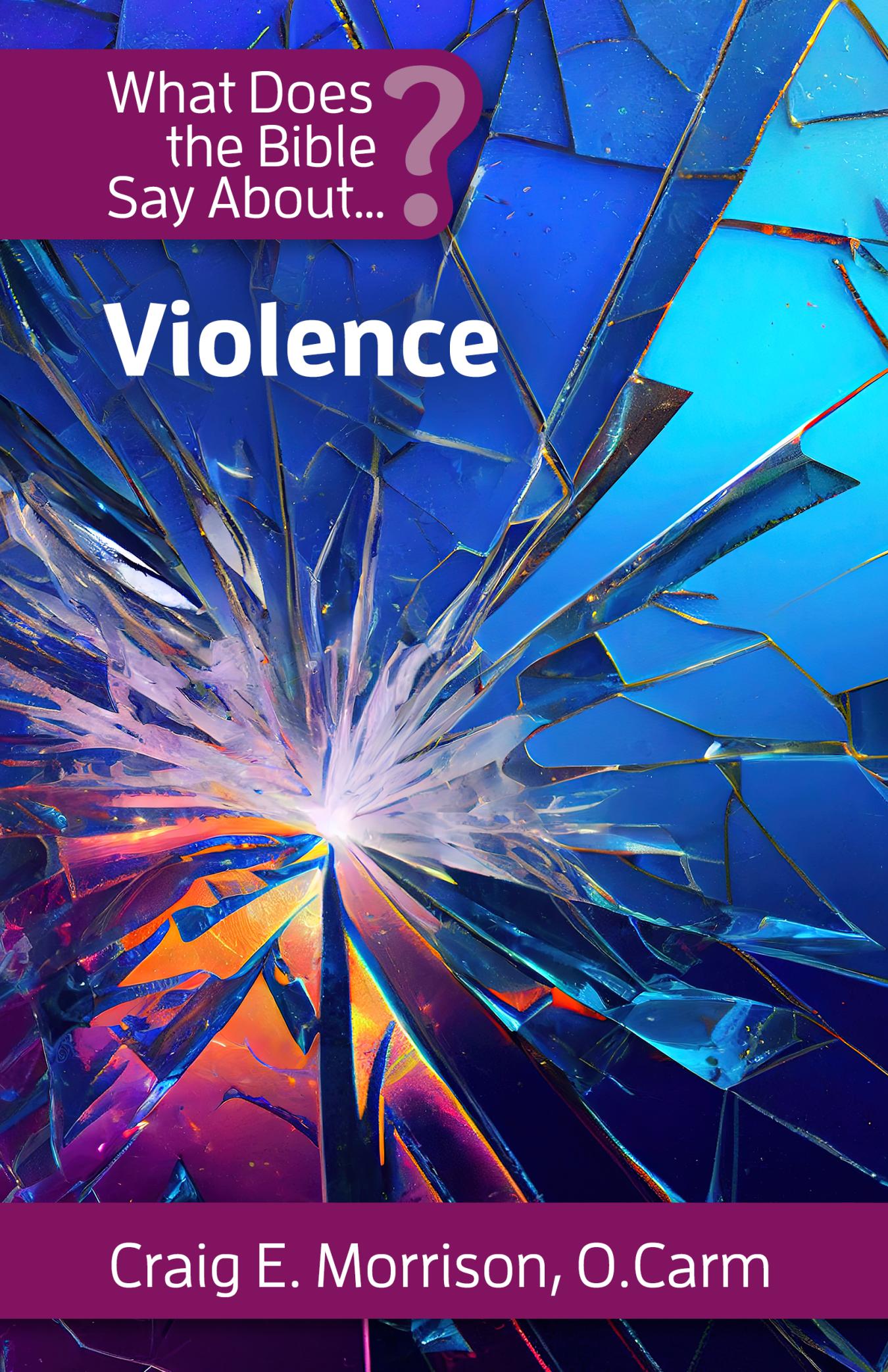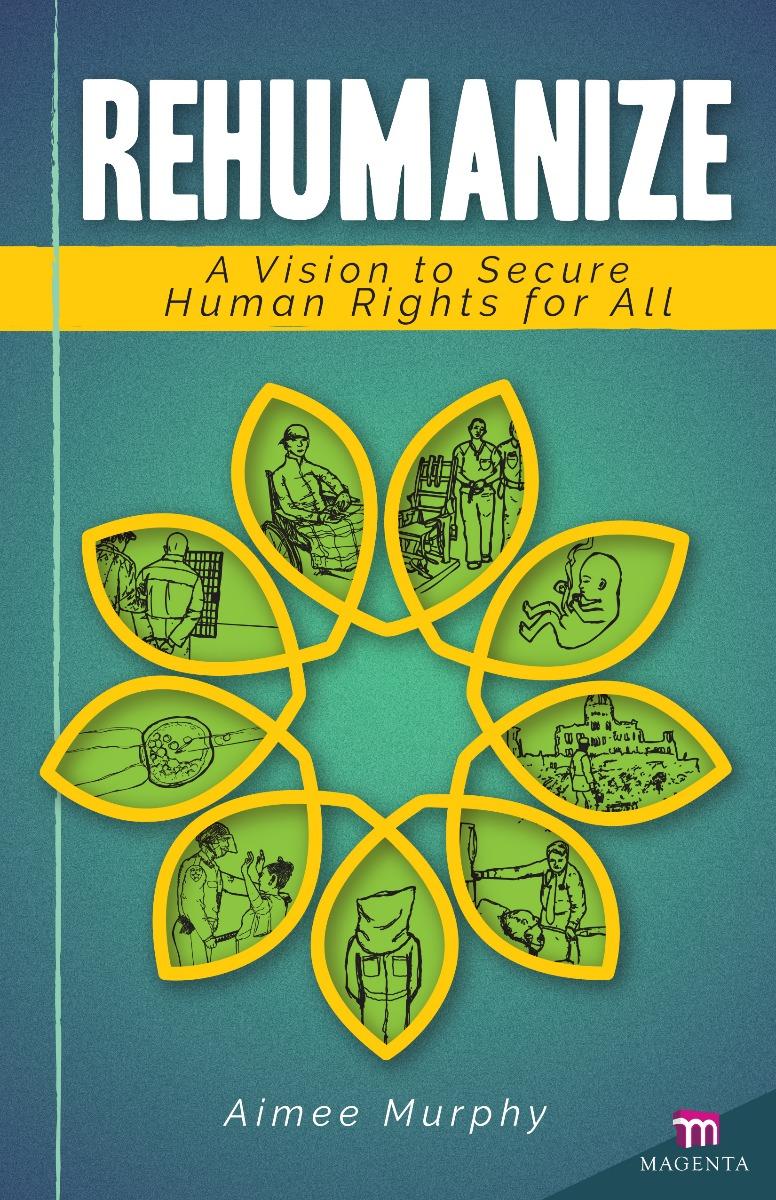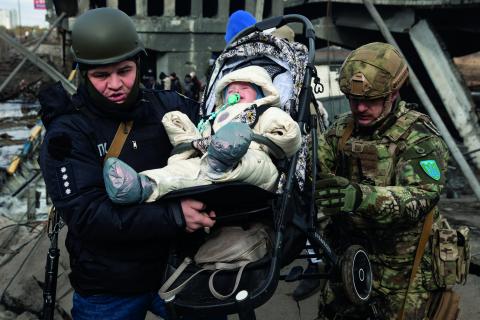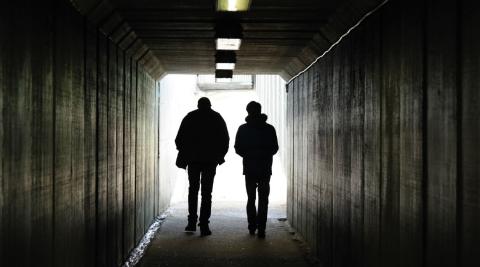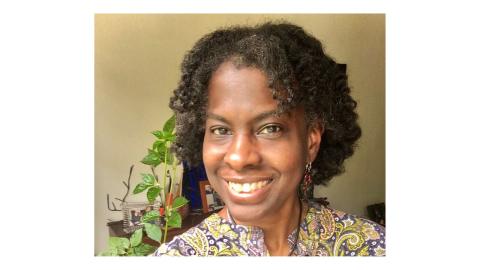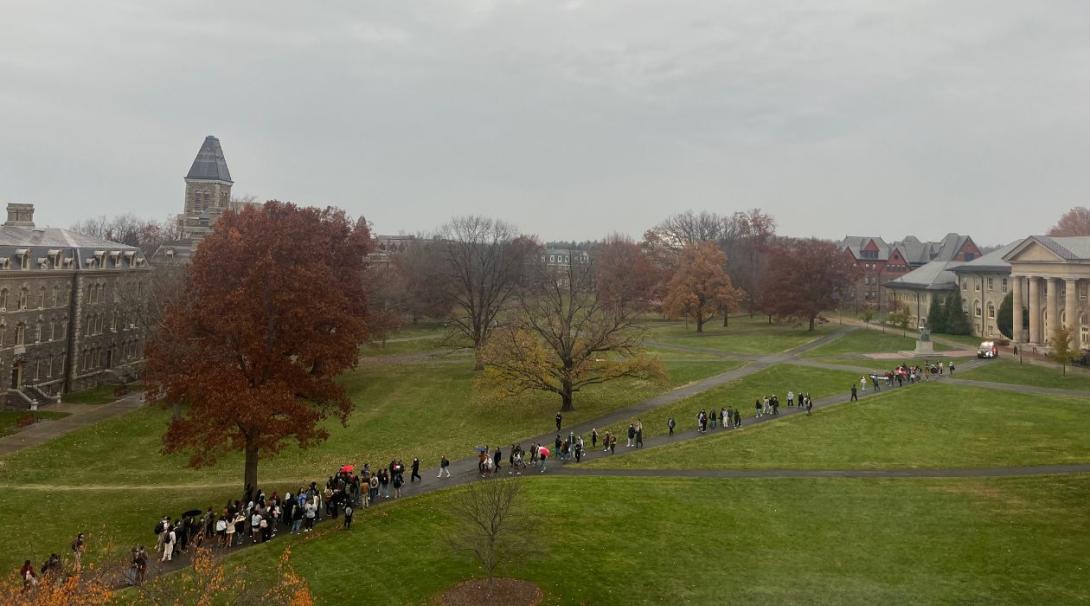
March for Gaza at Cornell University. © Wiki Commons.
Since Columbia University shut down a pro-Palestinian encampment last week, similar demonstrations have sprung up at dozens of campuses across the country. Students are pitching tents, hosting teach-ins, and waving Palestinian flags to advocate for divestment from companies profiting from the war in Gaza.
Institutional responses vary, with some campuses witnessing police intervention while others opt for a hands-off approach to maintain peace. This activism, amid finals and graduations, underscores the challenge of balancing free expression with maintaining a respectful academic environment.
At a recent meeting of the Boston College undergraduate student senate an undergraduate who did not identify himself raised concerns about the lack of free expression on campus amid the ongoing violence in Gaza. “I feel like there is a kind of free speech problem on our campus right now,” the student said. “I feel like that is a really serious matter and should really be at the forefront of what this organization should be discussing.” The student said that while the university has tried to create spaces for dialogue and reflection, these spaces are insufficient.
During an organized event last week on the Boston College campus, Fairuz Saleh, a student, said to those assembled, “I’m disappointed because I’m convinced too many of my peers at Boston College are living in a different world than I am. Because we’re a university that preaches men and women for others, I assume no student would turn a blind eye to the constant violence Palestinians are enduring.”
As a faculty member at Boston College, a Jesuit Catholic university, navigating the diverse perspectives and emotional intensity surrounding the Israel-Palestine conflict requires recognizing the dignity of each person, fostering empathetic dialogue and upholding academic freedoms. Promoting education and empathy while preventing escalation to violence is essential for creating an inclusive campus environment where students can engage meaningfully with this complex issue. Such a dialogue is not new. Back in the sixteenth century, St. Ignatius of Loyola provided his own guidance to the Jesuits attending the Council of Trent urging the Fathers to “understand the meaning, learnings and wishes of those who speak” and to express views with “humility and sincerity.”
Navigating the diverse perspectives and emotional intensity surrounding the Israel-Palestine conflict requires recognizing the dignity of each person, fostering empathetic dialogue and upholding academic freedoms
First and foremost, as a result of my encounters with students, faculty, and staff, it’s essential to acknowledge the extraordinary tragedy of the loss of human life, the intense pain and the mourning by members of the campus community who have lost friends and family and those who feel isolated and insecure. Second, it is necessary for me to keep in mind the diversity of perspectives among students and faculty. Universities are microcosms of the broader society, and students come from a wide range of backgrounds with varying experiences and beliefs. Some may have personal connections to the conflict, while others are learning about it for the first time. It’s important to recognize and respect this diversity, creating space for all voices to be heard.
At the same time, it’s crucial to uphold the values of academic freedom and freedom of speech. Universities should be places where students feel empowered to express their views, engage in debate, and challenge prevailing narratives. However, this must be done in a way that is respectful and empathetic, recognizing the humanity and dignity of all individuals involved in the conflict.
One of the challenges of navigating campus activism on this issue is the tendency for discussions to become polarized and emotionally charged. The Israel-Palestine conflict is deeply entrenched in historical, religious, and political contexts, with no easy solutions. As a faculty member, it’s important to facilitate conversations that encourage critical thinking, care for the other, and open-mindedness, rather than reinforcing binary thinking or demonizing the other side.
Another challenge is the potential for activism to spill over into hostility or violence. Unfortunately, there have been instances where tensions on college campuses have escalated to the point of physical confrontation or harassment. For university leaders, it’s crucial to intervene proactively to prevent such incidents and ensure the safety and well-being of all students.
One way to address these challenges is through education and dialogue
One way to address these challenges is through education and dialogue. Universities can play a vital role in providing students with the knowledge and tools they need to engage in informed, respectful discussions about the Israel-Palestine conflict. This can include offering courses, workshops, and guest lectures that provide diverse perspectives and promote critical thinking skills.
Additionally, universities can create spaces for dialogue and reconciliation, where students from different backgrounds can come together to share their experiences and perspectives in a safe and supportive environment. By fostering empathy and understanding, these initiatives can help bridge divides and promote peacebuilding efforts both on and off campus.
It’s clear that the current campus activism in response to the conflict between Israel and Palestinians in Gaza presents both opportunities and challenges. By upholding the values of the inherent dignity of each person, academic freedom, fostering constructive dialogue, and promoting education and reconciliation, we can create a campus environment where all students feel empowered to engage with this complex issue in a meaningful and potentially transformative way that contributes to healing, reconciliation and justice.


